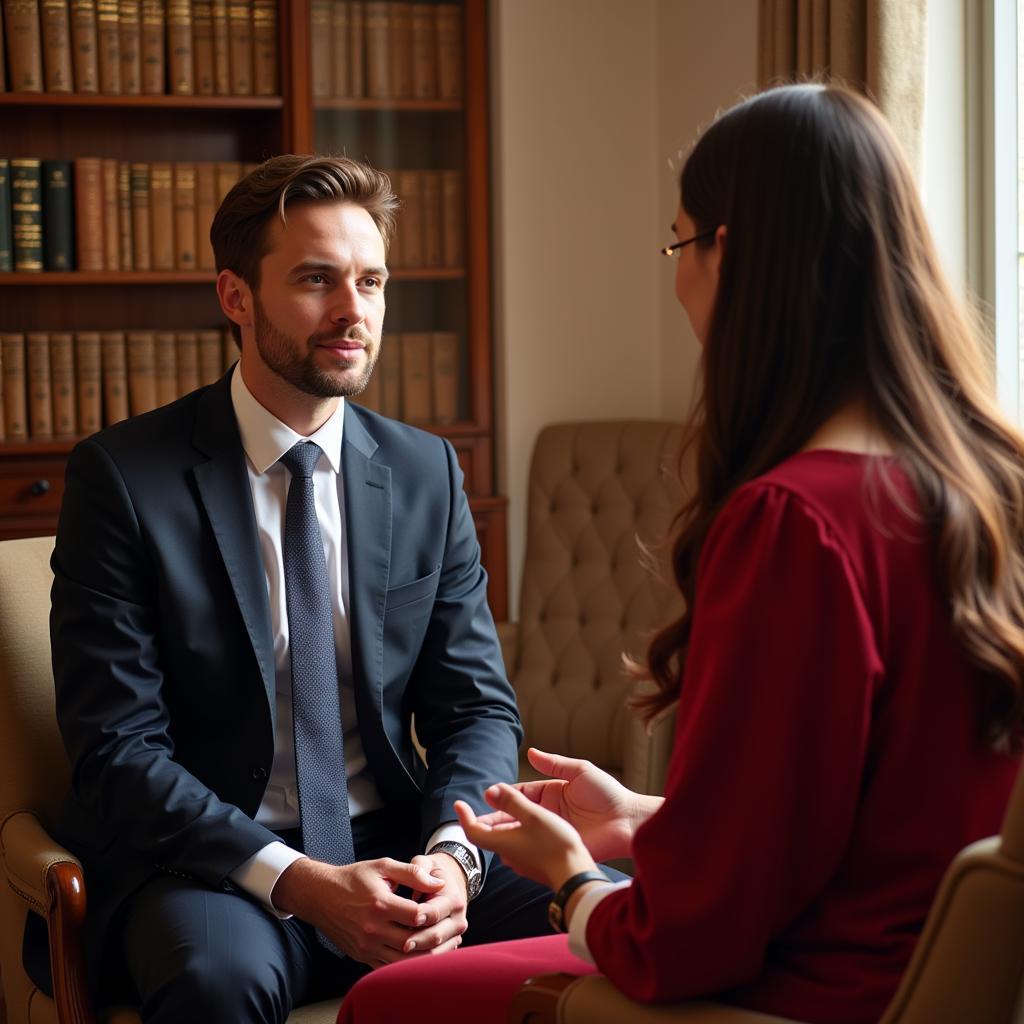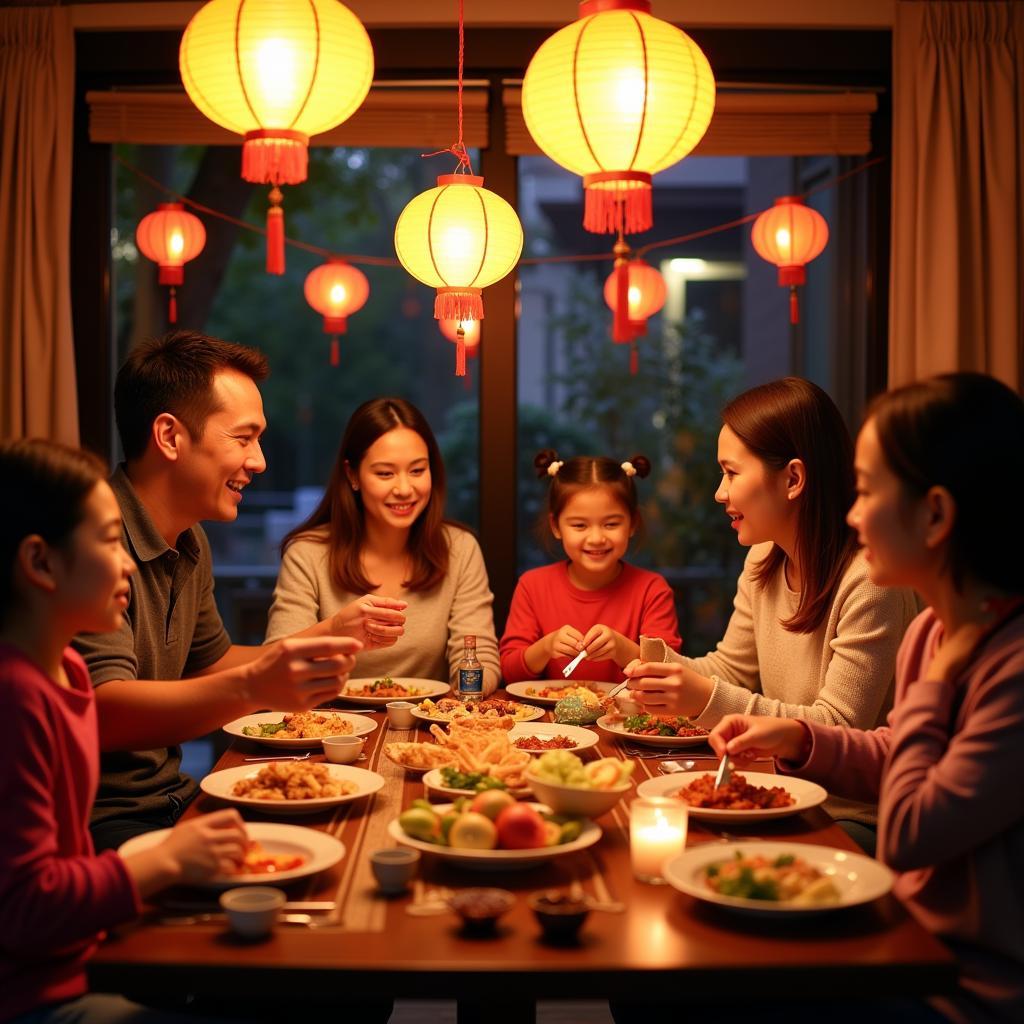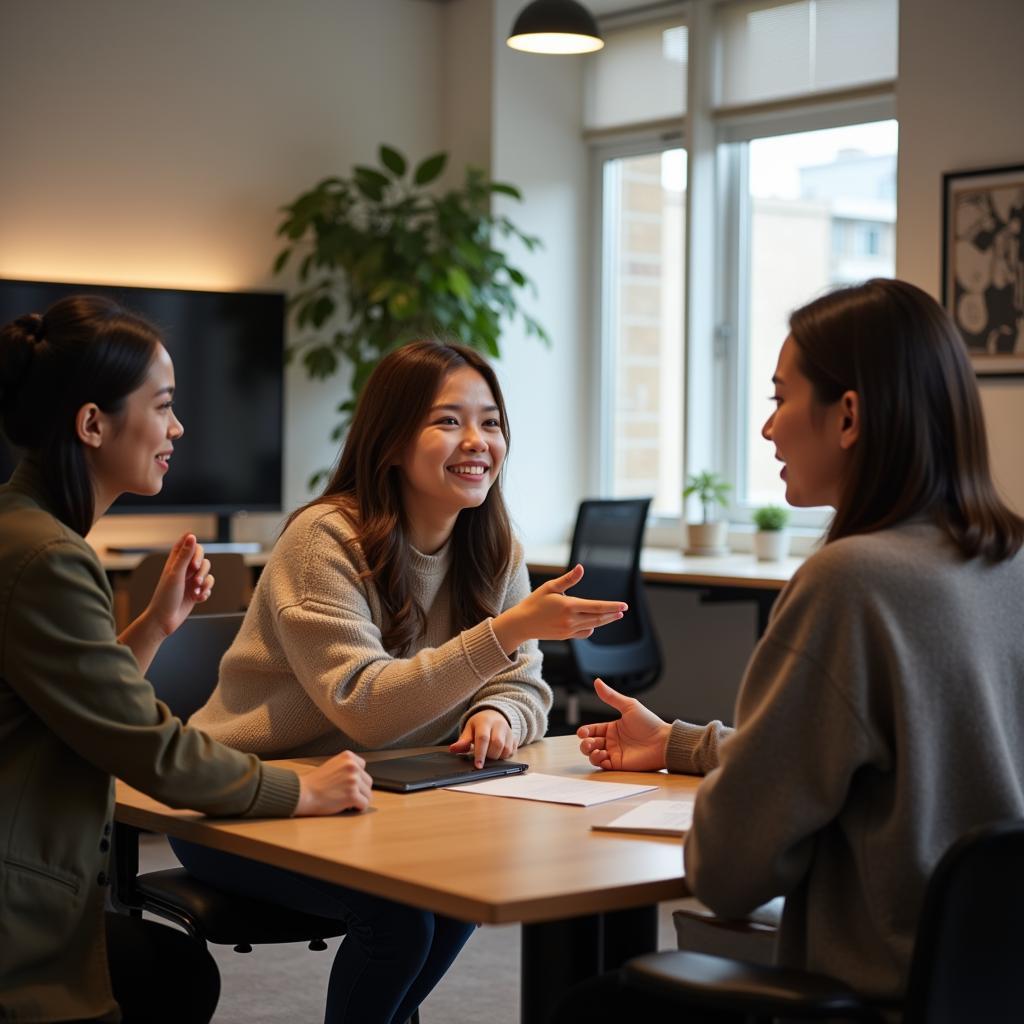Special days and celebrations are common topics in IELTS Speaking tests, particularly in Part 1 and Part 2. Let’s explore how to effectively answer questions about traditional celebrations and festivals in your country.
Nội dung bài viết
Part 1: Introduction and Interview Questions
Common questions examiners ask about celebrations:
- What special days do you celebrate in your country?
- Which is your favorite festival?
- How do you usually celebrate special occasions?
- Do you prefer traditional or modern celebrations?
 IELTS examiner asking candidate about special celebrations
IELTS examiner asking candidate about special celebrations
Sample Answer (Band 8-9)
“In Vietnam, one of the most significant celebrations is Lunar New Year, or Tet. It’s a time-honored tradition when families gather to welcome the new year. We typically observe various customs like visiting relatives, giving lucky money to children, and enjoying traditional foods such as banh chung.”
Part 2: Cue Card
Here’s a typical cue card about celebrations:
Describe an important festival celebrated in your country
You should say:
- What the festival is
- When it is celebrated
- How people celebrate it
- And explain why this festival is important
describe an important celebration in your family
Sample Answer (Band 8-9)
“I’d like to talk about the Mid-Autumn Festival, which is deeply rooted in our cultural heritage. This festival traditionally falls on the 15th day of the eighth lunar month, usually in September or October.
The celebration revolves around family reunions and children’s activities. People engage in various customs such as lighting lanterns, admiring the full moon, and sharing mooncakes. Children parade through the streets carrying colorful lanterns while adults prepare elaborate feasts.
What makes this festival particularly significant is its role in preserving our cultural identity. It serves as a bridge between generations, allowing elders to pass down stories and traditions to younger family members.”
 Family celebrating Mid-Autumn Festival with lanterns and mooncakes
Family celebrating Mid-Autumn Festival with lanterns and mooncakes
Part 3: Discussion Questions
Q: How have celebrations changed in recent years?
Sample Answer (Band 8-9)
“Contemporary celebrations have undergone significant transformation due to technological advances and changing social values. While traditional elements remain integral, there’s been a noticeable shift towards more modern expressions of festivity. For instance, describe a recent family gathering now often involves social media sharing and virtual participation from family members abroad.”
Key Vocabulary and Expressions
- Time-honored tradition /taɪm ˈɒnəd trəˈdɪʃən/ (phrase) – respected customs that have existed for a long time
- Cultural heritage /ˈkʌltʃərəl ˈherɪtɪdʒ/ (noun) – traditions passed down through generations
- Commemorate /kəˈmeməreɪt/ (verb) – to remember and show respect for something
- Festivities /fesˈtɪvɪtiz/ (noun) – celebration activities
- Traditional customs /trəˈdɪʃənl ˈkʌstəmz/ (phrase) – established practices of a culture
Tips from an Examiner
- Develop detailed responses using personal experiences
- Include specific cultural details and traditions
- Use a mix of simple and complex vocabulary
- Practice describing describe a unique custom in your culture
- Connect celebrations to broader social and cultural contexts
Remember to speak naturally and confidently while incorporating these sophisticated vocabulary items and structures into your responses.


